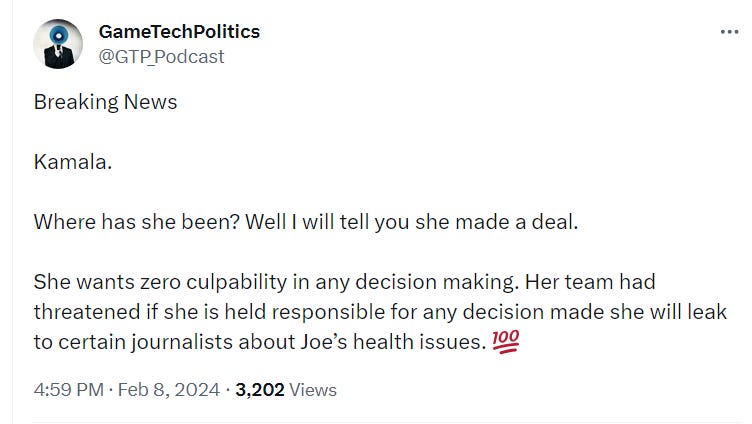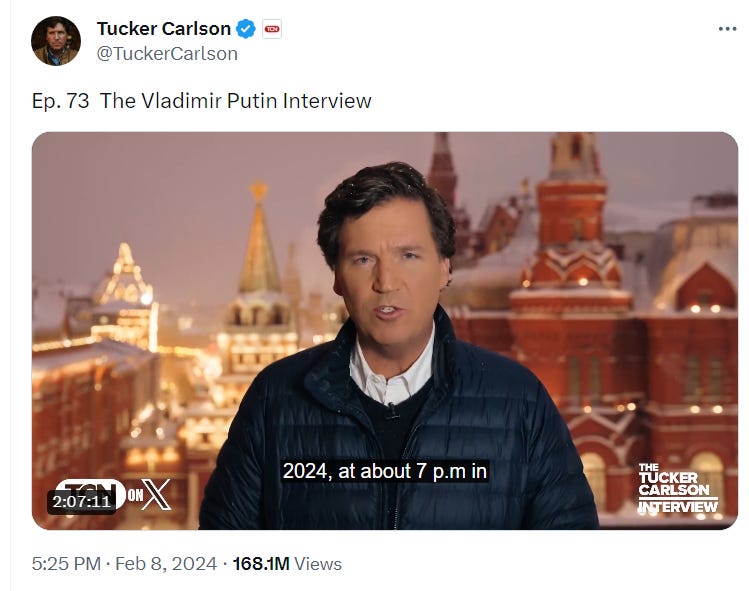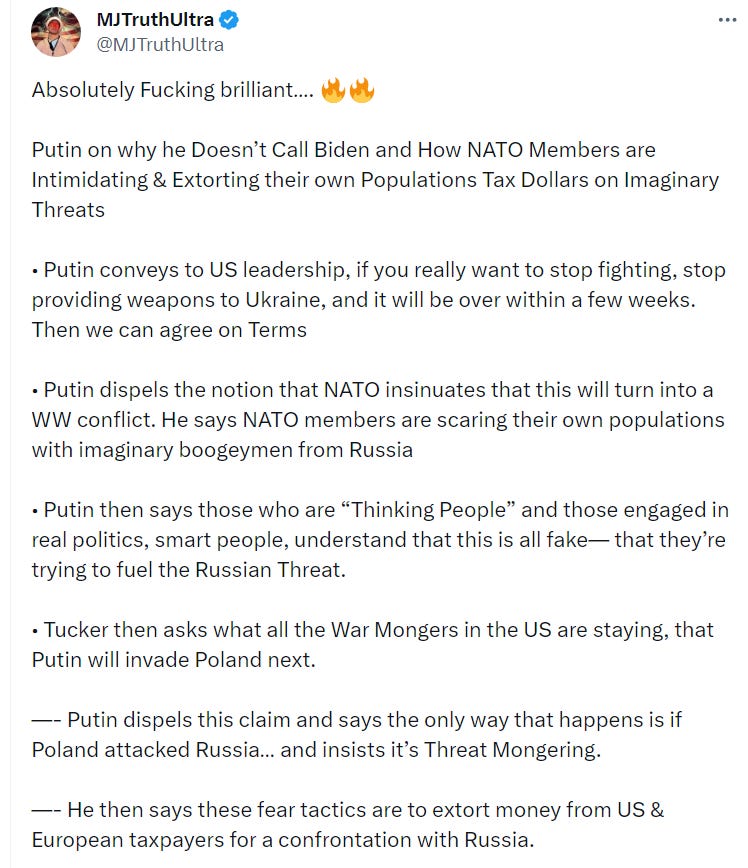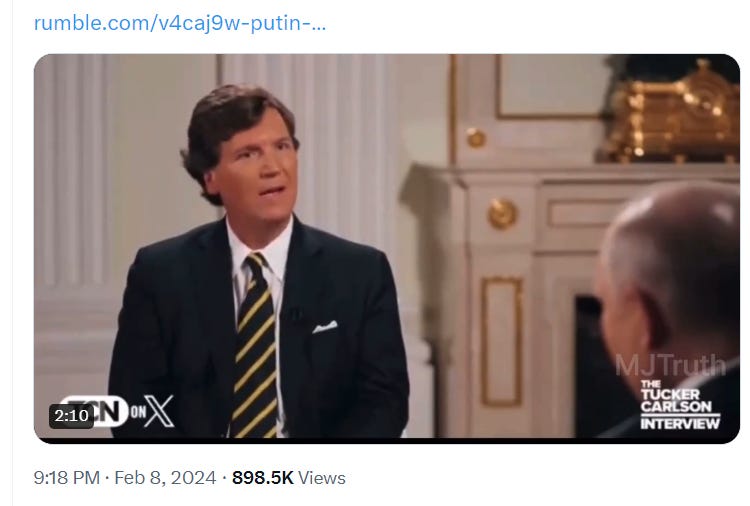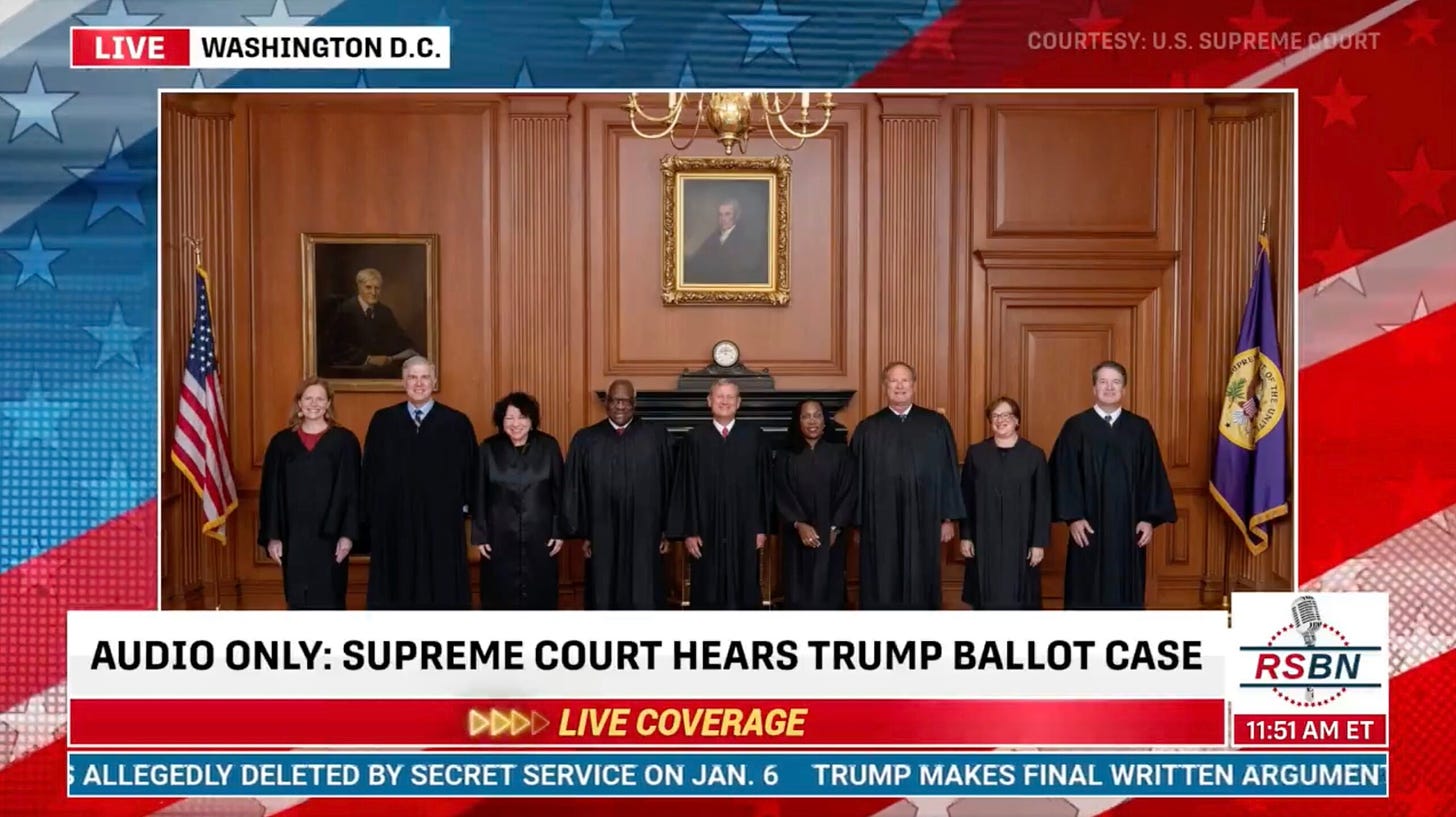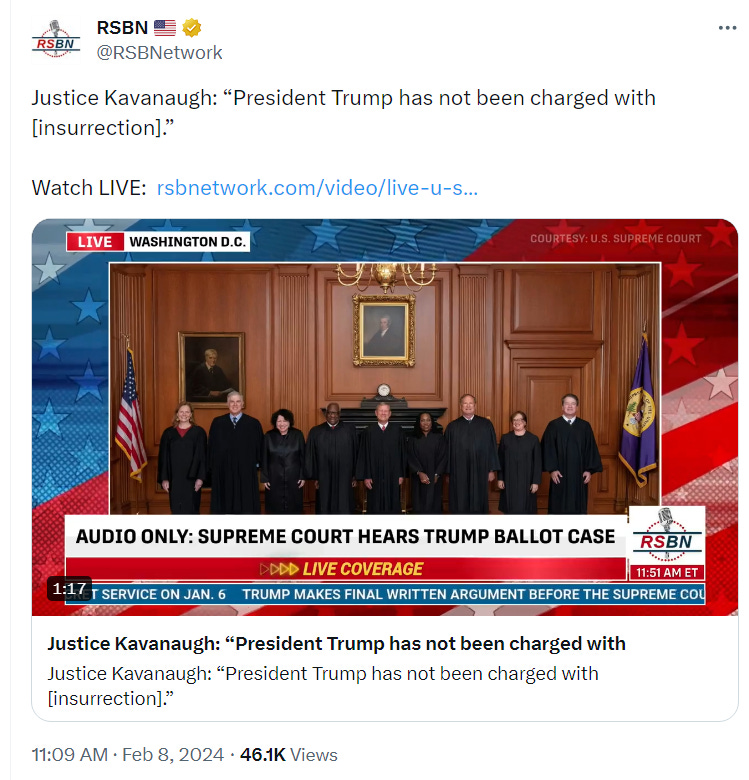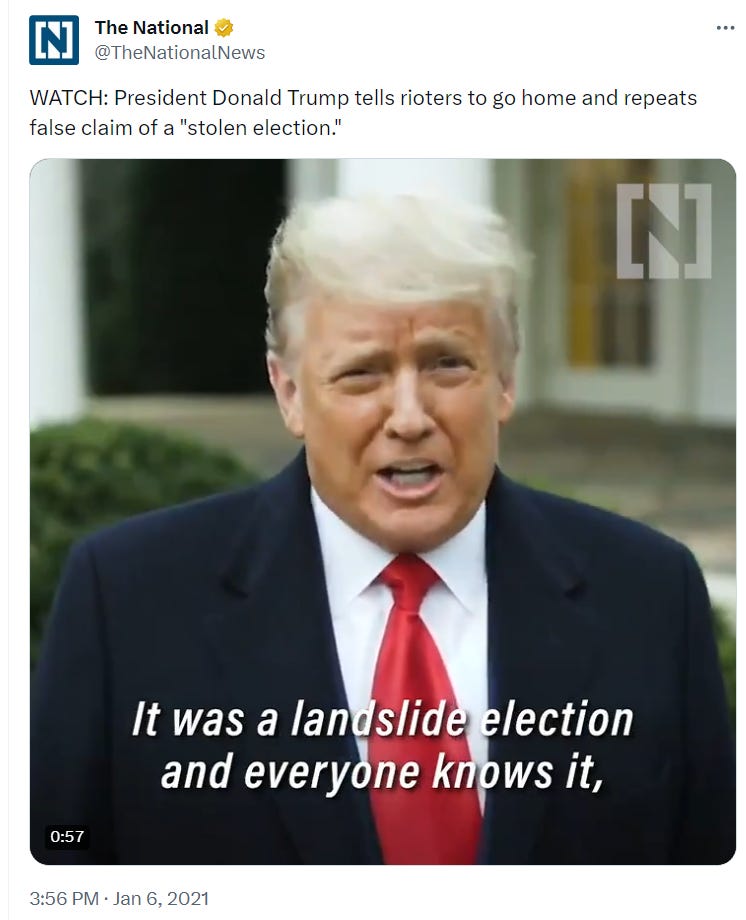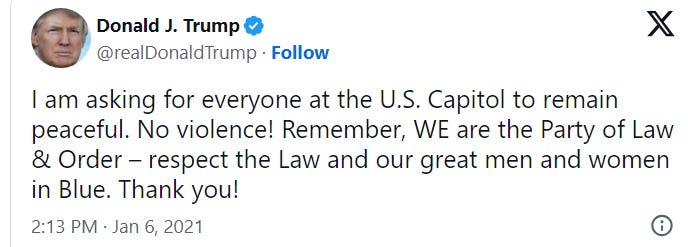It can be difficult to keep up with everything going on in the world right now. But with the Substack Daily Dose, you will have easy access to important news and happenings from the day, as well as what was covered during our shows, all in one place.
The Daily Dose:
Visit our site to find all of our sponsors as well as other ways that you can help support the Redpill Project:
Subscribe to Decentralized Media.
Guest Links:
This Video Will Get Donald Trump Elected
Watch:
You can also fine the interview on Tucker’s website:
Watch:
Justice Brett Kavanaugh Delivers Reality Check to Colorado Attorney in Effort to Exclude Trump from Ballot: ‘Trump Has Not Been Charged with an Insurrection’
During the Supreme Court oral arguments for Trump v. Anderson, Justice Brett Kavanaugh delivered a pointed reminder that former President Donald Trump has not been formally charged with insurrection.
Thursday’s proceedings centered on the contested application of the 14th Amendment’s prohibition against insurrectionists holding office, which has been invoked in an attempt to disqualify Trump from the 2024 primary ballot in Colorado.
The Colorado Supreme Court ruled in a 4-3 decision to keep President Trump off the 2024 Primary ballot in the state. The Colorado high court has been the only court to rule this way out of several decisions or dismissals in other states.
The legal theories are based on Section 3 of the US Constitution’s 14th Amendment which states public officials who have “engaged in insurrection or rebellion against” the US may be disqualified from public office.
During the proceedings, Justice Kavanaugh directly addressed Colorado attorney Jason Murray, emphasizing the absence of criminal charges against Trump related to insurrection.
Kavanaugh’s remarks shed light on the broader implications of the case, questioning the appropriateness of state-level decisions on matters potentially covered by federal statutes against insurrection. Kavanaugh highlighted existing federal statutes, like Section 2383 of Title 18, which already address the issue of insurrection.
Kavanaugh: “Some of the rhetoric of your position seems to suggest, unless the states can do this, no one can prevent insurrectionists from holding federal office. But obviously, Congress has enacted statutes, including one still in effect, Section 2383 of Title 18. [It] prohibits insurrection – it’s a federal criminal statute. And, if you’re convicted of that you are – it says, ‘shall be disqualified from holding any office.’ And so, there is a federal statute on the books, but President Trump has not been charged with that. So what are we to make of that?
Murray: “Two things, your honor. Section 2383 was initially enacted about six years before Section 3. It wasn’t meant as implementing legislation related to Section 3. And I would emphasize that by the time that Section 3 was ratified, most Confederates had already received criminal pardon.”
Kavanaugh: “I guess the question is a little bit different, which is, if the concern you have—which I understand—is that insurrectionists should not be able to hold federal office, there is a tool to ensure that that does not happen, namely, federal prosecution of insurrectionists. And if convicted, Congress made clear, you are automatically barred from holding a federal office. That tool exists, you agree, and could be used but could be used against someone who committed…”
LISTEN:
Justice Kavanaugh, referring to historical precedent, suggested the dormant nature of Section 3 over the past 150 years reflected a longstanding understanding based on legal history and congressional action or inaction.
Excerpt via Mediate:
Murray: There’s a reason section three has been dormant for 150 years, and it’s because we haven’t seen anything like January 6th since reconstruction. Insurrection against the Constitution is something extraordinary.
Roberts: It seems to me you’re avoiding the question, which is other states may have different views about what constitutes insurrection.
And now you’re saying, well, it’s all right, because somebody presumably us are going to decide. Well, they said they thought that was an insurrection, but they were wrong. And maybe they thought it was right. And we’d have to develop rules for what constitutes an insurrection.
Murray: Yes. Your honor, just like this court interprets other constitutional provisions, this court can make clear that an insurrection against the Constitution is something extraordinary.
And in particular, it really requires a concerted group effort to resist through violence, not some ordinary application of state or federal law, but the functions mandated by the Constitution–
Kavanaugh: On your point that it’s been dormant for 155 years. I think the other side would say the reason for that is Chief Justice Chase’s opinion in 1869, in Griffin’s case, to start, which says that Congress has the authority here, not the states.
That’s followed up by the Enforcement Act of 1870, in which Congress acts upon that understanding, which is followed, and there’s no history contrary in that period. As Justice Thomas pointed out, there’s no history contrary in all the years leading up to this of states exercising such authority.
I think the reason it’s been dormant is because there’s been a settled understanding that Chief Justice Chase, even if not right in every detail, was essentially right. And the branches of the government have acted under that settled understanding for 155 years.
And Congress can change that. And Congress does have section 2383, of course, the Insurrection Act, criminal statute. But Congress could change it. But they have not. And 155 years in relevant respects for what you want here today at least.
Murray: No, Justice Kavanaugh! The reason why it’s been dormant is because by 1876, essentially all former Confederates had received amnesty. And we haven’t seen anything like an insurrection since then.
Trump has not been charged with engaging in insurrection or rebellion against the United States.
Here is the video of President Trump telling supporters to be PEACEFUL before the riot at the Capitol!
WATCH:
Here’s the video of Trump telling the protesters to go home and saying, “We have to have peace.”
And here’s the tweet from Trump on January 6 telling the protesters to be peaceful.
-Jim Hoft, The Gateway Pundit








